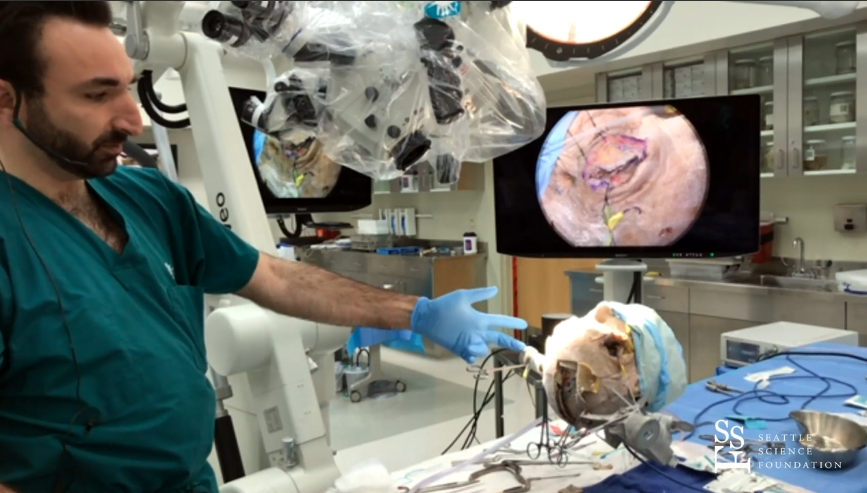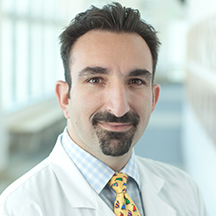Neuroanatomy residents and fellows were invited to attend the 10th Annual Brain Anatomy Review hosted by Seattle Science Foundation and featuring experts from around the country.

In March this year, Seattle Science Foundation held the 10th Neuroanatomy Residents & Fellows Course for fellows and PGY4 residents and above. Each year, the course covers the latest advances in the science and art of surgical management of complex cranial neurosurgical disorders. The course offers 3-D neuro-anatomy lectures combined with hands-on practical laboratory experience.
Lectures and demonstrations focus on how in-depth knowledge of brain anatomy and physiology can be used to effectively treat disorders of the brain from brain tumors to epilepsy, Parkinson’s disease to essential tremor, or other functional disorders. The course explores the use of functional mapping, advanced imaging, and intraoperative tools such as iCT, frame-based and frameless navigation. Deep brain stimulation techniques, endoscopy, focused ultrasound and laser ablation techniques are also discussed.
Endoscopic Assisted Keyhole Approaches for Brain Surgery

Presented by Garni Barkhoudarian, MD, FAANS, on Friday, March 29 & 30, 2019, at the Seattle Science Foundation, Endoscopic Assisted Keyhole Approaches is available as Season 1, Episode 11. A lab demo was also performed.

Keyhole surgery is the concept of safely removing brain, skull base and pituitary tumors through smaller, more precise openings that minimize collateral damage to surrounding scalp, brain, blood vessels and nerves. A majority of these tumors can now be removed via one of the several keyhole approaches available nowadays, using a small craniotomy (bony skull opening) or an approach through the nostrils. These approaches are technically demanding, require specialized instrumentation, significant surgical expertise and are not appropriate for all tumors.
Dr. Barkhoudarian is a board-certified, fellowship-trained neurosurgeon with a focus on skull base and minimally invasive endoscopic surgery. Dr. Barkhoudarian graduated from UCLA in 2000 and received his medical education at the University of Michigan Medical School in 2005. He completed his neurosurgical residency at the UCLA Medical Center. He completed a Pituitary and Neuroendoscopy Fellowship with Dr. Edward Laws, at Brigham & Women’s Hospital in 2012. He is a member of the American Academy of Neurological Surgeons (AANS), the Congress of Neurological Surgeons (CNS), the International Society of Pituitary Surgeons (ISPS) and the Armenian American Medical Society (AAMS). He is a board member of the Congress of Neurological Surgeons (CNS), where he works with national colleagues to improve research, education and patient care in neurosurgery. He is an advisory board member of the Self-Assessment in Neurological Surgery (SANS) committee, writing questions to help advance the knowledge of neurosurgeons in training and in practice. Additionally, he is vice-chair of the education committee for the CNS, preparing educational content to advance neurosurgical care worldwide.
For more information about minimally invasive surgery for brain, skull base and pituitary tumors, please contact us at 310-582-7450.
The post Seattle Science Foundation TV: Endoscopic Assisted Keyhole Approaches For Brain Surgery appeared first on Pacific Neuroscience Institute.























